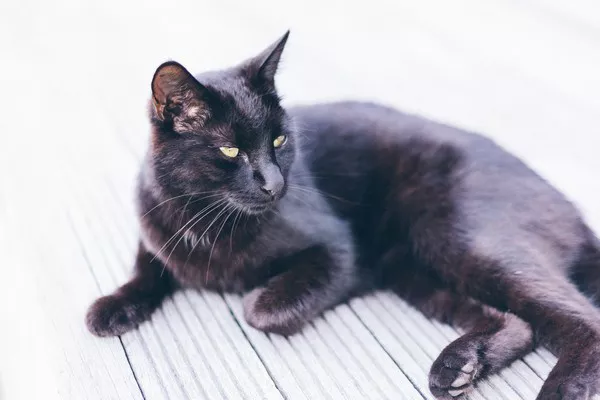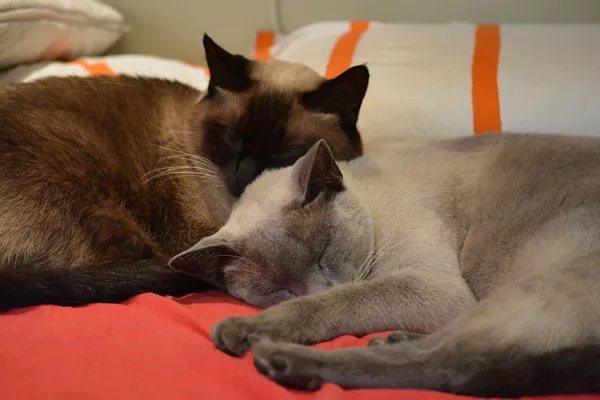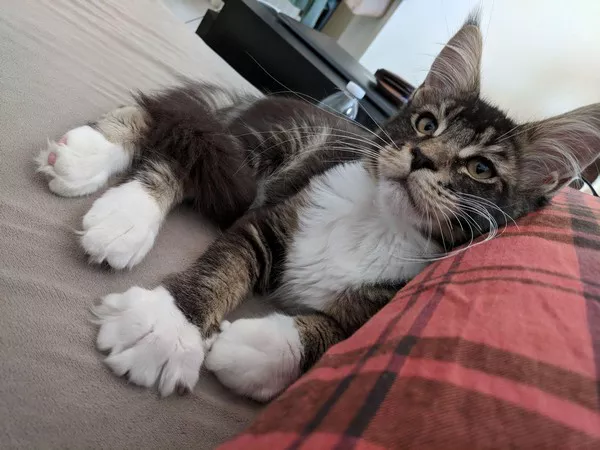Fading Kitten Syndrome, also known as FKS, is a term used to describe a set of symptoms and conditions that can affect newborn kittens, often leading to severe illness or death within the first few weeks of life. While raising newborn kittens can be a rewarding experience, it comes with its own set of challenges, including the potential risk of Fading Kitten Syndrome. In this comprehensive guide, we will explore the causes, signs, prevention, and steps to take if you suspect a kitten is affected by Fading Kitten Syndrome.
Understanding Fading Kitten Syndrome
Fading Kitten Syndrome is not a specific disease but rather a collection of clinical signs and conditions that indicate a kitten’s failing health. It can encompass a range of underlying issues, making it a complex and multifactorial syndrome. Kittens affected by FKS may fail to thrive, experience stunted growth, and, in severe cases, succumb to illness or die within the first few weeks of life.
Common Causes of Fading Kitten Syndrome
The causes of Fading Kitten Syndrome can vary and may involve a combination of factors. Some of the most common contributing factors include:
Inadequate Maternal Care: A mother cat’s care and attention are crucial for the survival of her kittens. Inexperienced or stressed mother cats may not provide sufficient care, warmth, and nutrition to their kittens.
Infections: Kittens, particularly those born to unvaccinated or unwell mothers, are susceptible to infections, including bacterial, viral, or parasitic infections. Common infections that can contribute to FKS include panleukopenia, respiratory infections, and internal parasites.
Nutritional Deficiencies: Inadequate nutrition, either from the mother’s milk or supplemental feeding, can lead to malnourishment and failure to thrive.
Congenital Defects: Some kittens are born with congenital defects or abnormalities that affect their ability to thrive, such as heart defects or developmental issues.
Environmental Stress: Exposure to extreme temperatures, drafts, or unsanitary living conditions can increase a kitten’s stress levels and weaken their immune system.
Signs of Fading Kitten Syndrome
Recognizing the signs of Fading Kitten Syndrome is crucial for prompt intervention and care. Common signs and symptoms include:
Failure to Thrive: Affected kittens may exhibit stunted growth and development compared to their littermates. They may appear smaller, weaker, and less active.
Weight Loss: Kittens with FKS may lose weight or fail to gain weight as expected. This can result in a visibly emaciated appearance.
Lethargy: Affected kittens are often lethargic and may lack the energy to engage in typical kitten behaviors, such as play and exploration.
Difficulty Nursing: Kittens may struggle to nurse, have difficulty latching onto the mother’s nipple, or show disinterest in feeding.
Hypothermia: Fading kittens are more susceptible to hypothermia due to their weakened condition. They may feel cold to the touch.
Dehydration: Dehydration is a common complication in kittens with FKS. Signs of dehydration include dry gums, sunken eyes, and a lack of skin elasticity.
Respiratory Distress: Some kittens may exhibit rapid or labored breathing, coughing, or sneezing, indicating underlying respiratory infections.
Preventing Fading Kitten Syndrome
Preventing Fading Kitten Syndrome involves providing proper care and creating a conducive environment for newborn kittens. Here are essential steps to help prevent FKS:
Promote Good Maternal Care: Ensure that the mother cat receives proper prenatal care and nutrition. Encourage her to bond with and care for her kittens, providing warmth and regular nursing.
Regular Veterinary Care: Schedule prenatal and postnatal checkups with a veterinarian to monitor the mother cat’s health and the kittens’ progress. Discuss vaccination and deworming protocols.
Nutrition: Feed the mother cat a high-quality diet designed for pregnant and lactating cats to support her nutritional needs. Provide clean, fresh water at all times.
Clean Environment: Maintain a clean and safe environment for the mother cat and her kittens. Keep their living area warm, dry, and free of drafts.
Supplemental Feeding: If necessary, provide supplemental feeding to kittens who are struggling to nurse or are not gaining weight. Consult your veterinarian for guidance on formula feeding.
Quarantine Sick Kittens: Isolate kittens showing signs of illness to prevent the spread of infection to healthy littermates. Consult a veterinarian promptly.
Vaccination and Deworming: Follow a veterinarian-recommended vaccination and deworming schedule for both the mother cat and kittens to prevent infectious diseases and parasites.
Hygiene and Sanitation: Maintain good hygiene by cleaning and disinfecting the kittens’living area regularly. Dispose of waste promptly and wash hands before handling the kittens.
What to Do If You Suspect Fading Kitten Syndrome
If you suspect that one or more kittens in a litter are experiencing Fading Kitten Syndrome, it’s essential to act quickly to provide them with the care they need:
Isolation: Isolate the affected kitten(s) from their littermates to prevent the potential spread of infection. Place them in a warm, quiet, and clean environment.
Consult a Veterinarian: Contact your veterinarian immediately for guidance and an examination. They can assess the kitten’s condition, diagnose underlying issues, and recommend appropriate treatment.
Nutritional Support: If the kitten is not nursing effectively or appears malnourished, discuss supplemental feeding options with your veterinarian. They can recommend suitable kitten formula and feeding techniques.
Hydration: Address dehydration by providing rehydration solutions designed for kittens, as recommended by your veterinarian.
Medication: If an infection is suspected, your veterinarian may prescribe antibiotics or other medications to treat the underlying cause.
Warming: Ensure that the kitten stays warm and comfortable. You can use a heating pad set on low (covered with a towel) or a heating lamp to maintain a consistent temperature.
Conclusion
Fading Kitten Syndrome is a distressing condition that affects newborn kittens, but with proper care, vigilance, and prompt intervention, its impact can be minimized. By understanding the causes, recognizing the signs, and taking preventive measures, you can create a healthier and safer environment for mother cats and their precious kittens, ensuring their well-being and successful growth. Always consult your veterinarian for guidance and support when faced with a kitten’s health concerns.























